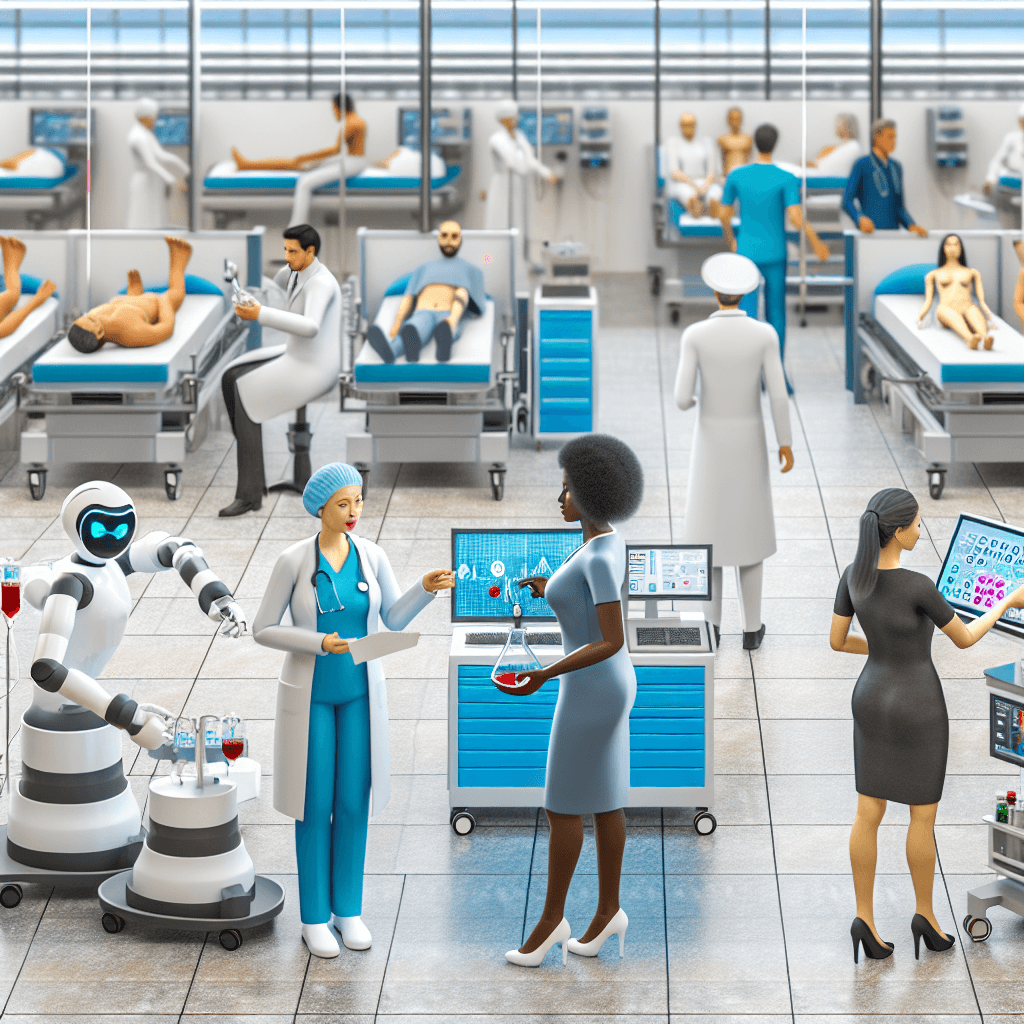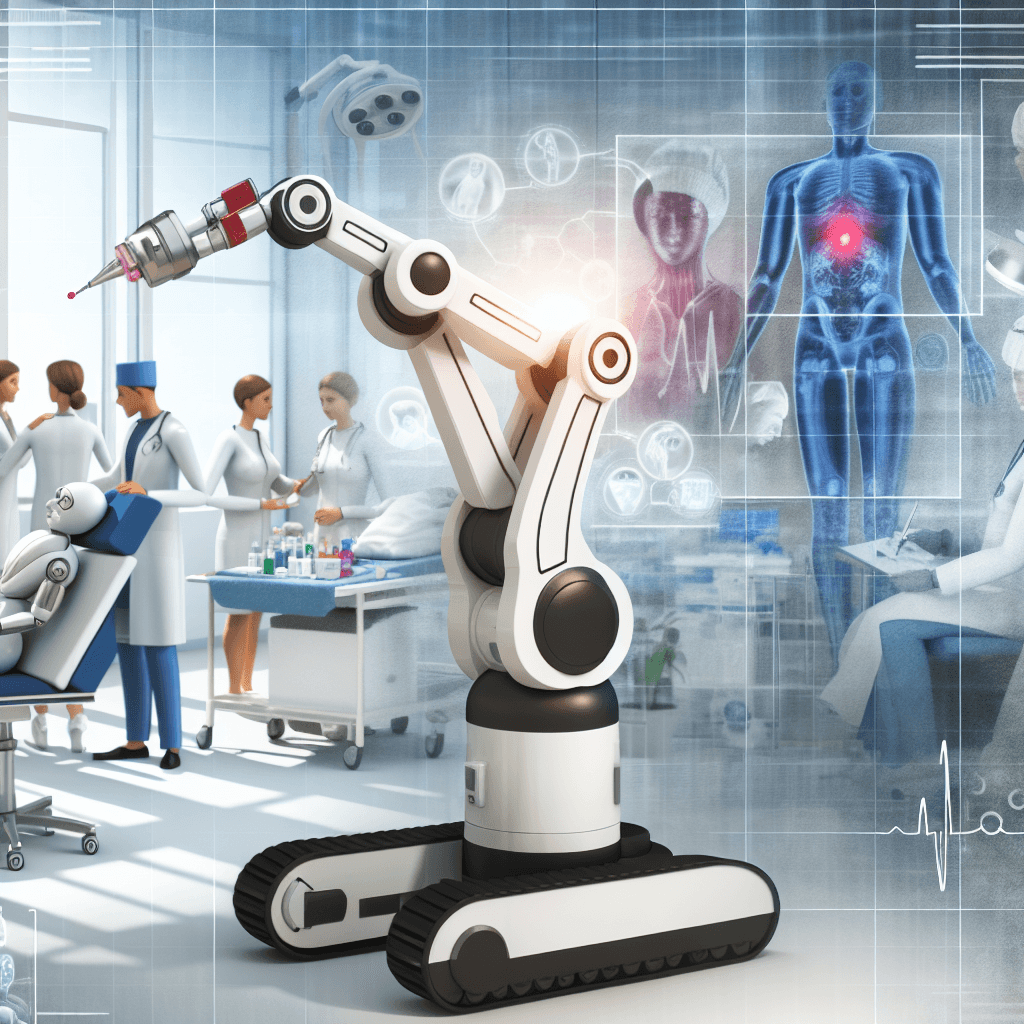Explore the growth of Robotic Process Automation in the healthcare market, enhancing efficiency and patient care.
Robotic Process Automation In Healthcare Market

Table of Contents
Robotic Process Automation in the Healthcare Market

The integration of Robotic Process Automation (RPA) in healthcare is revolutionizing the way medical institutions operate, leading to enhanced efficiency, reduced costs, and improved patient care. This article explores the impact of RPA in the healthcare sector, highlighting its applications, benefits, challenges, and future prospects.
Understanding Robotic Process Automation (RPA)
Robotic Process Automation (RPA) refers to the technology that allows organizations to automate routine and repetitive tasks through software robots or ‘bots’. These bots can mimic human actions within digital systems, executing tasks such as data entry, processing transactions, and managing records without human intervention.
Applications of RPA in Healthcare
RPA has found numerous applications in healthcare, streamlining operations and allowing staff to focus more on patient care rather than administrative tasks. Some of the key applications include:
- Patient Scheduling: RPA bots can automate the scheduling of appointments, ensuring optimal use of healthcare providers’ time and reducing waiting periods for patients.
- Billing and Claims Processing: Automating the billing and claims processes reduces errors and speeds up reimbursement from insurance companies.
- Data Management: RPA can efficiently manage patient data across various systems, ensuring accuracy and accessibility while maintaining compliance with regulations such as HIPAA.
- Supply Chain Management: RPA helps in automating inventory management, tracking medical supplies, and predicting future needs to avoid shortages or overstock situations.
Benefits of RPA in Healthcare
The adoption of RPA in healthcare brings several benefits, including:
- Increased Efficiency: Automation speeds up the processing of data and execution of repetitive tasks, leading to increased operational efficiency.
- Cost Reduction: By automating tasks, healthcare providers can reduce labor costs and minimize errors which might otherwise lead to financial losses.
- Improved Patient Care: With administrative tasks automated, healthcare professionals can focus more on patient care and improve service delivery.
- Enhanced Accuracy: RPA reduces the chances of human error in data entry and processing, leading to more accurate medical records and billing information.
- Compliance: Automated processes are consistent and can be easily updated to comply with changing healthcare regulations.
Challenges in Implementing RPA in Healthcare
Despite its benefits, the implementation of RPA in healthcare faces several challenges:
- Integration with Legacy Systems: Many healthcare systems use outdated software that may not integrate seamlessly with RPA solutions.
- Initial Investment Costs: The initial cost for setting up RPA can be high, particularly for small healthcare facilities.
- Change Management: There can be resistance to change from staff who are accustomed to traditional methods of operation.
- Data Privacy Concerns: Handling sensitive patient data through automation requires stringent measures to ensure privacy and security.
Case Studies of RPA in Healthcare
Several healthcare organizations have successfully implemented RPA, demonstrating significant improvements in their operations. Here are a few examples:
- Case Study 1: A large hospital network implemented RPA to automate patient registration and billing processes, resulting in a 50% reduction in processing time and a 30% decrease in errors.
- Case Study 2: A healthcare provider used RPA bots to manage its inventory, leading to a 20% reduction in excess inventory costs and improved supply chain efficiency.
Future Prospects of RPA in Healthcare
The future of RPA in healthcare looks promising with continuous advancements in technology. Future trends may include:
- Integration with AI: Combining RPA with artificial intelligence (AI) to make more complex decisions and provide predictive analytics.
- Expanded Scope: Expanding the use of RPA to more complex healthcare operations such as clinical decision support and personalized patient monitoring.
- Improved Patient Interaction: Using RPA to enhance patient interaction platforms, providing real-time communication and support.
Conclusion
Robotic Process Automation is transforming the healthcare industry by automating mundane tasks, reducing costs, and allowing healthcare professionals to focus more on patient care. While there are challenges in implementing RPA, the benefits far outweigh these obstacles, making it a valuable investment for the future of healthcare. As technology evolves, RPA’s role in healthcare is expected to grow, further enhancing efficiency and patient satisfaction.
In conclusion, embracing RPA in healthcare not only streamlines operations but also significantly contributes to better patient outcomes and organizational efficiency. It is an exciting time for healthcare providers to consider how best to integrate this technology into their operations.








